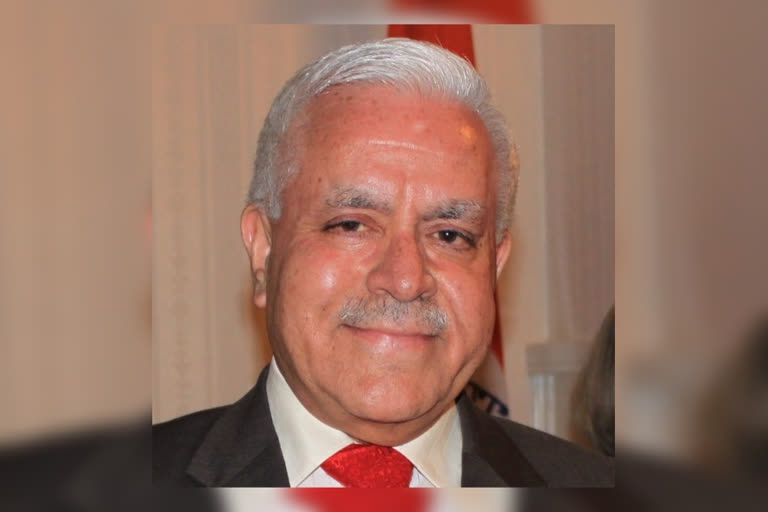New Delhi: At a time when India-US is moving ahead to foster bilateral and strategic partnerships to counter China in the Indo-Pacific, the passage of USS John Paul Jones through India’s Exclusive Economic Zone (EEZ) without prior permission and consent, has surprised all.
India’s Former ambassador Ashok Sajjanhar who has also worked in a diplomatic position in Washington DC told ETV Bharat that the United States is not even a signatory to the UN convention on the Law of the Sea (UNCLOS), so the United States cannot take a recourse that such move is permitted under the UN law.
“India’s understanding of the situation is very different from what the United States is saying. In addition to the UN law, if we go by that, India has its regulations that any vessels or ships which passes through, even if there is an innocent passage, they should seek India’s permission and consent before doing that”, Ashok Sajjanhar said.
“The United States is not even a signatory to the UNCLOS, so they cannot take recourse that such move is permitted under the UN law. Secondly, it appears that this sort of move by the United States has been happening for many years and it is not the first time. This move by the US Navy seems like a chest-thumping, telling the whole world that whether it is China or India, they will continue conducting their freedom of navigation operation. India has its own rules and regulations also, which needs to be respected and complied with”, he explained.
He reiterated that the UNCLOS which is an international agreement was adopted in the year 1992 and India has signed the agreement in the year 1994. And the United States is not a signatory to the convention. Irrespective of the legal position, how the United States has handled the issue is uncalled for and unwarranted.
“It unnecessarily creates problems between two strategic partners. Total understanding and collaboration between India-US are critical if they have to take on China. Lakshwadeep is not an artificial island and India is not creating an artificial island like China is in the South China Sea. So basically the challenge should be against China and not against what India is doing”, he underlined.
“India- US ties are strategic and much stronger than one such incident denting it. But still, it is totally ‘uncalled for’ and it should not happen again. Both the countries need to have a heart to heart conversation and try to agree as to how to deal with it in the future. Such a move by the United States is not going to have an impact on the relations with India in a significant manner, it is just a bubble in the water and it will disappear. What needs to be done is some backchannel conversation to ensure that such issues are not repeated”, he added.
It has become even more important for India and the United States to lay all the speculations to rest and send across a message to the international community that the relationship between the two is strong and powerful, Sajjanhar pointed out.
The US Navy regularly conducts such patrols in the South China Sea to challenge China’s aggressiveness in the Indo –Pacific region and territorial claims over its neighbours. But the move by the United States to infiltrate into Indian waters without prior permission and consent came as a major blow to the long-lasting relationships that both India and the United States are trying to nurture with each passing day, to counter China.
India has lodged a protest in New Delhi and Washington DC against such a move by the United States to conduct freedom of navigation operation in India’s Exclusive Economic Zone.
A statement released by the Ministry of External Affairs on Friday said, “The Government of India’s stated position on the United Nations Convention on the Law of the Sea is that the Convention does not authorise other States to carry out in the Exclusive Economic Zone and on the continental shelf, military exercises or manoeuvres, in particular, those involving the use of weapons or explosives, without the consent of the coastal state”.
The USS John Paul Jones was continuously monitored transiting from the Persian Gulf towards the Malacca Straits. We have conveyed our concerns regarding this passage through our EEZ to the Government of the U.S.A through diplomatic channels, the MEA added.
Soon after that, the Pentagon on Friday maintained that they were conducting navigational rights within India’s Exclusive Economic Zone and that it was an “innocent passage” without requesting “prior permission” and is consistent with international law.
Pentagon spokesperson John Kirby said that it is the responsibility of the US to uphold the freedom of navigation and the rights and freedom and lawful uses of the sea recognized in international law.
ALSO READ: Pentagon asserts navigational rights inside India's EEZ without permission



